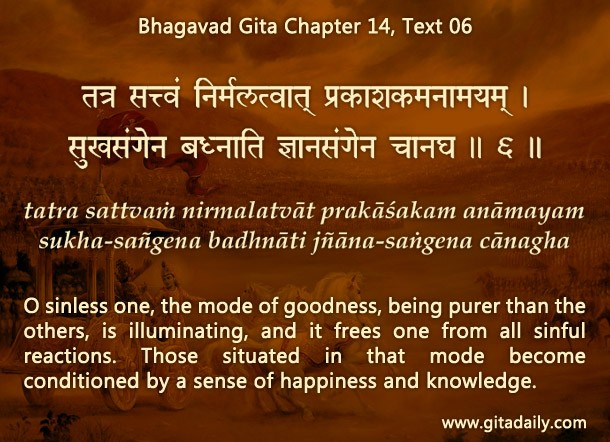Sometimes while dreaming, we may see ourselves waking up and becoming more aware of things. Despite this increased awareness, we haven’t woken up.
For us as souls, embodied life is like a dream – just as a dream is temporary, so is our present life of misidentification with our material body. Significantly, within embodied existence, we can be at various levels of awareness. In the lower modes of passion and ignorance, we are often so infatuated with worldly pleasures or so dejected at not getting them that our awareness of even material reality remains fragmental. For example, alcoholics can become so obsessed with the next drink as to be unmindful of how their actions are hurting others or even themselves.
In contrast with the lower modes, the mode of goodness engenders holistic material awareness – we can better perceive our circumstances and the consequences of our actions. Yet, as long as we remain unaware of our spiritual identity, we are still spiritually asleep. So, the higher awareness of the mode of goodness is like waking up within the dream.
Pertinently, the Bhagavad-gita (14.06) indicates that the mode of goodness can bind us with knowledge – by making us complacent that we are more knowledgeable than others, it can take away our impetus to strive for spiritual awareness.
Nonetheless, the mode of goodness is conducive for realizing our spiritual identity, provided we strive for it. Gita wisdom prompts us towards such realization by enjoining the practice of yoga, especially bhakti-yoga. Practice of bhakti-yoga gives us higher spiritual taste that far supersedes the pleasure of material knowledgeableness. The transcendental lure of this taste inspires us to rise from waking up within the dream to waking up from the dream and relishing ecstatic eternal life of love with Krishna.
Explanation of article:
Podcast:


Leave A Comment